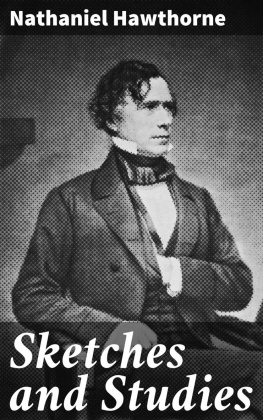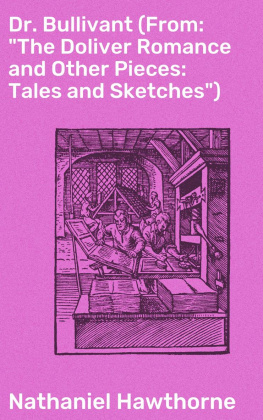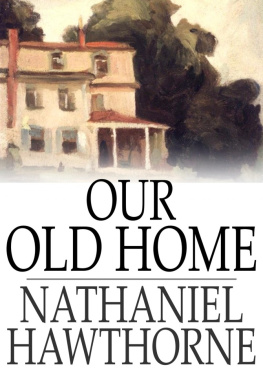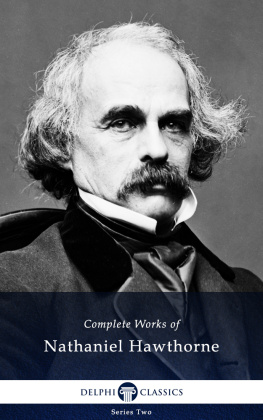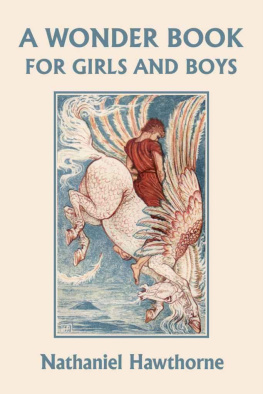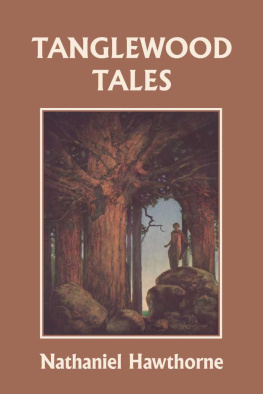George E. Woodberry - Nathaniel Hawthorne
Here you can read online George E. Woodberry - Nathaniel Hawthorne full text of the book (entire story) in english for free. Download pdf and epub, get meaning, cover and reviews about this ebook. year: 2011, publisher: Barnes & Noble, genre: Detective and thriller. Description of the work, (preface) as well as reviews are available. Best literature library LitArk.com created for fans of good reading and offers a wide selection of genres:
Romance novel
Science fiction
Adventure
Detective
Science
History
Home and family
Prose
Art
Politics
Computer
Non-fiction
Religion
Business
Children
Humor
Choose a favorite category and find really read worthwhile books. Enjoy immersion in the world of imagination, feel the emotions of the characters or learn something new for yourself, make an fascinating discovery.
- Book:Nathaniel Hawthorne
- Author:
- Publisher:Barnes & Noble
- Genre:
- Year:2011
- Rating:3 / 5
- Favourites:Add to favourites
- Your mark:
- 60
- 1
- 2
- 3
- 4
- 5
Nathaniel Hawthorne: summary, description and annotation
We offer to read an annotation, description, summary or preface (depends on what the author of the book "Nathaniel Hawthorne" wrote himself). If you haven't found the necessary information about the book — write in the comments, we will try to find it.
A secluded child who went on to become a secluded writer, Nathaniel Hawthorne developed into a classic American novelist. George E. Woodberrys biography of the complicated writer explores Hawthornes New England childhood, life, influences, and career, and is an excellent resource for anyone passionate about Hawthorne.
Nathaniel Hawthorne — read online for free the complete book (whole text) full work
Below is the text of the book, divided by pages. System saving the place of the last page read, allows you to conveniently read the book "Nathaniel Hawthorne" online for free, without having to search again every time where you left off. Put a bookmark, and you can go to the page where you finished reading at any time.
Font size:
Interval:
Bookmark:
GEORGE E. WOODBERRY

This 2011 edition published by Barnes & Noble, Inc.
All rights reserved. No part of this publication may be reproduced, stored in a retrieval system, or transmitted, in any form or by any means, electronic, mechanical, photocopying, recording, or otherwise, without prior written permission from the publisher.
Barnes & Noble, Inc.
122 Fifth Avenue
New York, NY 10011
ISBN: 978-1-4114-5502-3
I
FIRST YEARS
T HE Hathorne family stock, to name it with the ancient spelling, was English, and its old home is said to have been at Wigcastle, Wilton, in Wiltshire. The emigrant planter, William Hathorne, twenty-three years old, came over in the Arbella with Winthrop in 1630. He settled at Dorchester, but in 1637 removed to Salem, where he received grants of land; and there the line continued generation after generation with varying fortune, at one time coming into public service and local distinction, and at another lapsing again into the common lot, as was the case of the long settled families generally. The planter, William Hathorne, shared to the full in the vigor and enterprise of the first generation in New England. He was a leader in war and peace, trade and politics, with the versatility then required for leadership, being legislator, magistrate, Indian fighter, explorer, and promoter, as well as occasionally a preacher; and besides this practical force he had a temper to sway and incite, which made him reputed the most eloquent man in the public assembly. He possessedand this may indicate another side to his charactera copy of Sir Philip Sidney's "Arcadia," certainly a rare book in the wilderness. He was best remembered, both in local annals and family tradition, as a patriot and a persecutor, for he refused to obey the king's summons to England, and he ordered Quaker women to be whipped through the country-side.
The next generation, born in the colony, were generally of a narrower type than their fathers, though in their turn they took up the work of the new and making world with force and conscience; and the second Hathorne, John, of fanatical memory, was as characteristically a latter-day Puritan as his father had been a pioneer. He served in the council and the field, but he left a name chiefly as a magistrate. His duty as judge fell in the witchcraft years, and under that adversity of fortune he showed those qualities of the Puritan temperament which are most darkly recalled; he examined and sentenced to death several of the accused persons, and bore himself so inhumanely in court that the husband of one of the sufferers cursed him,it must have been dramatically done to have left so vivid a mark in men's minds,him and his children's children. This was the curse that lingered in the family memory like a black blot in the blood, and was ever after used to explain any ill luck that befell the house. The third heir of the name, Joseph, was a plain farmer, in whose person the family probably ceased from the ranks of the gentry, as the word was then used. The fourth, Daniel, "bold Hathorne" of the Revolutionary ballad, was a privateersman, robust, ruddy of face, blue-eyed, quick to wrath,a strong-featured type of the old Salem shipmaster. His son, Nathaniel, the fifth descendant, was also bred to the sea, a young man of slight, firm figure, and in face and build so closely resembling his famous sonfor he was the father of Hawthornethat a passing sailor once recognized the latter by the likeness. What else he transmitted to his son, in addition to physique, by way of temperament and inbred capacity and inclination, was to suffer more than a sea-change; but he is recalled as a stern man on deck, of few words, showing doubtless the early aging of those days under the influence of active responsibility, danger, and the habit of command, and, like all these shipmastersfor they were men of some educationhe took books to sea with him. He died at Surinam in 1808, when thirty-two years old. He had married Elizabeth Clarke Manning, herself a descendant in the fifth generation of Richard Manning, of St. Petrox Parish, Dartmouth, whose widow emigrated to New England with her children in 1679. Other old colonial families that had blended with the Hathornes and Mannings in these American years were the Gardner, Bowditch, and Phelps stocks, on the one side, and the Giddings, Potter, and Lord, on the other. Of such descent, Nathaniel Hawthorne, the second child and only son of this marriage, was born at Salem, July 4, 1804, in his grandfather Daniel's house, on Union Street, near the wharves.
The pleasant, handsome, bright-haired boy was four years old when his mother called him into her room and told him that his father was dead. She soon removed with him and his sisters, of whom Elizabeth was four years older and Louisa two years younger than himself, to her father's house in the adjoining yard, which faced on Herbert Street; and there the young mother, who was still but twenty-seven, following a custom which made much of widows' mourning in those times, withdrew to a life of seclusion in her own room, which, there or elsewhere, she maintained till her death, through a period of forty years; and, as a perpetual outward sign of her solitude, she took her meals apart, never eating at the common table. There is a touch of mercy in life which allows childhood to reconcile itself with all conditions; else one might regret that the lad was to grow up from his earliest memory in the visible presence of this grief separating him in some measure from his mother's life; it was as if there were a ghost in the house; and though early anecdotes of him are few and of little significance, yet in his childish threat to go away to sea and never come back again, repeated through years, one can but trace the deep print of that sorrow of the unreturning ones which was the tragedy of women's lives all along this coast. His mother cared for him nonetheless, though she was less his companion, and there seems to have been no diminution of affection and kindness between them, though an outward habit of coldness sprang up as time went on. He had his sisters for playmates at first, and as he grew up, he was much looked after by his uncles. His first master was Dr. Worcester, the lexicographer, then just graduated from Yale, who set up a school in Salem; and, the lad being lamed in ball-playing, the young teacher came to the house to carry on the lessons. The accident happened when Hawthorne was nine years old, and the injury, which reduced him to crutches, continued to trouble him till he was twelve, at least, after which, to judge by the fact that he attended dancing-school, he seems to have entirely recovered from it. The habit of reading came to him earlier, perhaps because of his confinement and disability for sports in these three or four years; he was naturally thrown back upon himself. He is seen lying upon the floor habitually, and when not playing with catsthe only boyish fondness told of himreading Shakspere, Milton, Thomson, the books of the household, not uncommon in New England homes, where good books were as plenty then as all books are now; and on Sundays, at his grandmother Hathorne's, across the yard, he would crouch hour after hour over Bunyan's "Pilgrim's Progress," that refuge of boyhood on the oldtime Sabbaths. It is recollected that, by the time he was fourteen, he had read Clarendon, Froissart, and Rousseau, besides "The Newgate Calendar," a week-day favorite; and he may be said to have begun youth already well versed in good English books, and with the habit and taste of literary pleasure established as a natural part of life. "The Farie Queene" was the first book he bought with his own money. He was vigorous enough now; but the two outward circumstances that most affected his boyhood, the monotone of his mother's sorrow and his own protracted physical disability, must have given him touches of gravity and delicacy beyond his years. It is noticeable that nothing is heard of any boy friends; nor did he contract such friendships, apparently, before college days.
Font size:
Interval:
Bookmark:
Similar books «Nathaniel Hawthorne»
Look at similar books to Nathaniel Hawthorne. We have selected literature similar in name and meaning in the hope of providing readers with more options to find new, interesting, not yet read works.
Discussion, reviews of the book Nathaniel Hawthorne and just readers' own opinions. Leave your comments, write what you think about the work, its meaning or the main characters. Specify what exactly you liked and what you didn't like, and why you think so.



